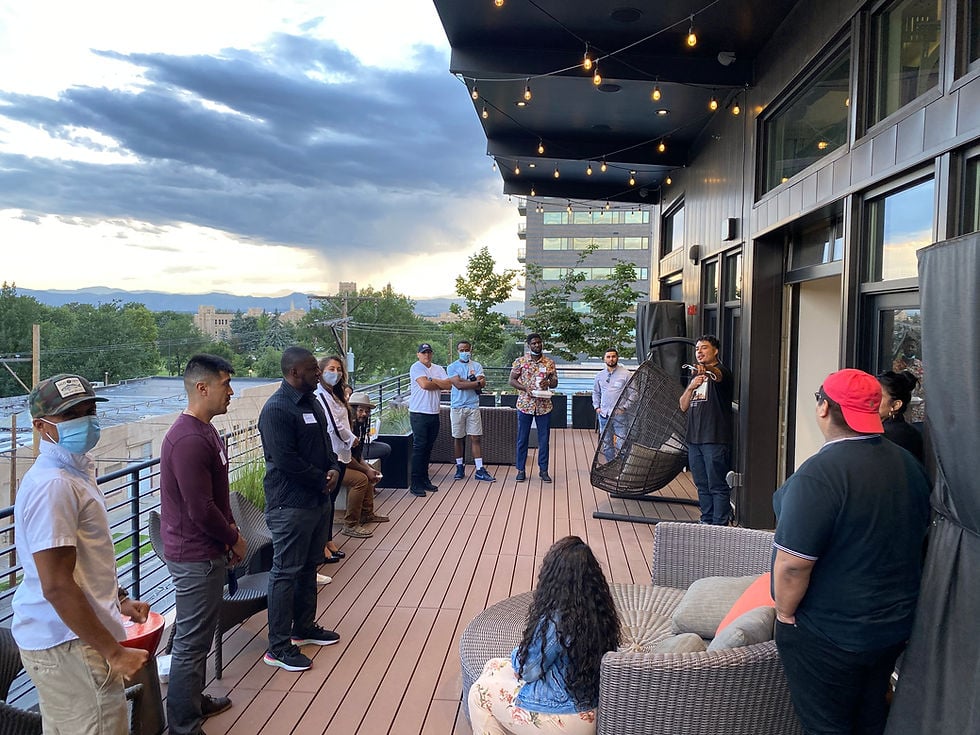
Original Article by Chalkbeat
When TeRay Esquibel was 16, he found the power of his voice. It’s part of what inspired him a decade later to co-found Ednium: The Alumni Collective, a new group of young Denver Public Schools alumni advocating for policy changes in the district.
Esquibel was a student at Denver’s Abraham Lincoln High School when he became a father. His son was born three months premature, weighing less than 2 pounds. Esquibel had dreams of being the first in his family to graduate from college, but he also faced doubters. Through an internship aimed at reframing young parenthood, Esquibel told his story and interviewed other teen fathers. He won awards and spoke to hospital staff about the microaggressions he’d experienced, such as his son’s doctors turning their backs to him. “When I found my voice, things got really clear,” Esquibel said. “At a point in time when it didn’t feel like people saw me, finding a way to utilize my voice gave me power.”
That lesson stuck with Esquibel when he went to the University of Denver, and after he graduated. And it was on his mind the first time he gathered a group of recent Denver Public Schools alumni to meet with district officials, an effort that eventually became Ednium. Most alumni involved with Ednium are people of color, and all are between 17 and 30. The group has two purposes: To empower young graduates by providing leadership training, and to advocate for things they wish they had when they were students. Ednium is seeking to become a nonprofit organization, and it has received funding from local philanthropies and support from education advocacy organization RootED, for which Esquibel works.
“This is reinvesting in the brilliance in our backyard,” said Esquibel, 27. “This is mobilizing the brilliance to be the powerful force for change that we claim we want them to be.” Ednium’s first two requests to the district, where a majority of students are Black and Hispanic, are to make courses in ethnic studies and financial literacy requirements to graduate.
“A lot of the people around me, when they get to college, they’re being offered these credit cards and offered all this debt, not knowing what that is,” said Kai Suematsu, a 2018 graduate of George Washington High who is now a student at the University of Colorado Boulder.
As a high school freshman, Suematsu took a one-semester financial literacy course where he learned practical skills like the difference between savings and checking accounts and how to do his taxes. They’re skills he still uses today. But most Denver students aren’t learning the same things in school. Last year, the financial literacy class was offered at just four Denver high schools. Only 157 students in the 92,000-student district took it, according to Ednium.
“Why am I the exception?” Suematsu asked the Denver school board last month. “Why couldn’t my friends who are now in credit card debt have the opportunity to take those classes?”
Ednium alumni also spoke about the need for more ethnic studies classes. Former Denver Superintendent Susana Cordova, who resigned last month, had made increasing the number of students taking courses like African American history and Chicano studies one of her priorities. In 2019, only 8% of Denver high school students took an ethnic studies course. The number of courses offered at each high school ranged from several to none at all. “In the fourth grade, I learned about our state bird,” said Richard Maez, a graduate of John F. Kennedy High School who now works for the district. “Seventh grade, I learned about the pharaoh Tutankhamun. Tenth grade, we explored the Roman Empire. And in 12th grade, we spent one week discussing the Mexican Revolution. It wasn’t until college that I was able to take a course exploring race and ethnicity and its impact on the United States.”
East High graduate Stephanie Lopez said it’s important for students to see themselves in the curriculum. “A cultural and ethnic studies curriculum can provide the space for students to see themselves, as well as the space to have real conversations about race,” she said. Ednium’s advocacy dovetails with a push from current Denver high school students to diversify the curriculum. The school board has been receptive, passing a resolution this fall to add the “comprehensive historical and contemporary contributions of Black, Indigenous, and Latino communities” to the curriculum from kindergarten to 12th grade.
But the resolution doesn’t make ethnic studies a graduation requirement. Esquibel said he believes the district can both diversify the curriculum and prioritize ethnic studies. Thus far, Ednium has gotten a positive response from district leaders, starting with former superintendent Cordova and her senior staff, who have met with the alumni regularly. “What I’ve been telling the alumni is we got their attention,” Esquibel said. “But now we’re at the hard part. There’s going to be resistance somewhere. How do we deal with it?”
-1.png?width=1150&height=352&name=Ednium%20Email%20(2)-1.png)


Comments